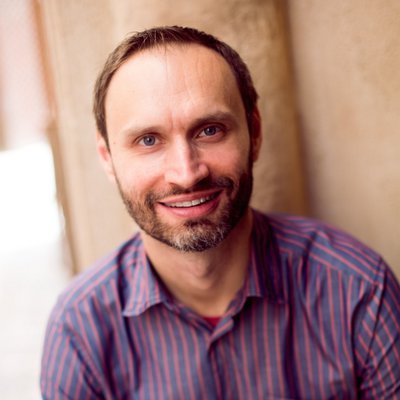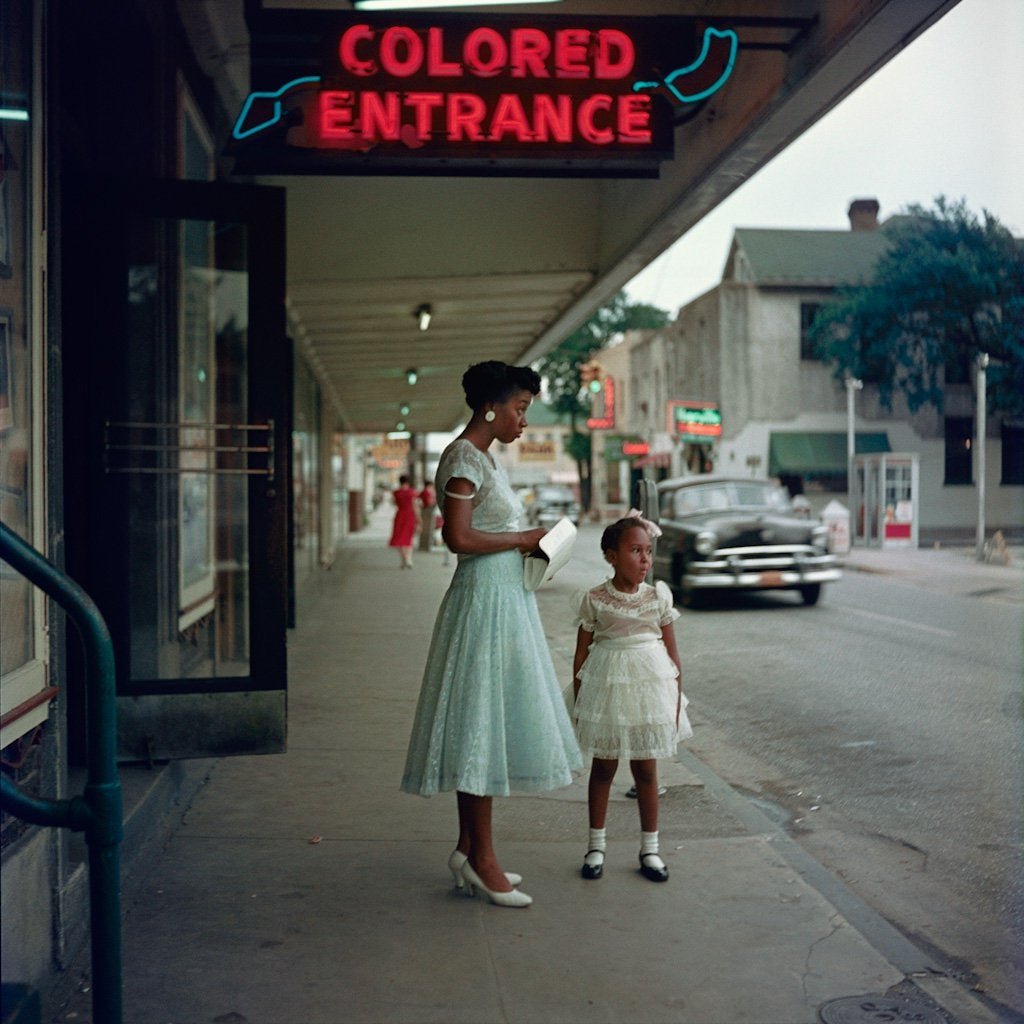Pastors Pursuing Diversity: Interview with Dave Furman
Over the next few months, I will be conducting interviews with pastors who are pursuing diversity in their congregations. You can read more about the series in the introduction.
The questions are geared to help pastors and congregations in the pursuit of diversity in the church and all of life. All of the views, opinions, and suggestions are that of the interviewee. The goal of the series is to provide a resource from a variety of pastors, and therefore opinions may also vary.
(Due to length, please feel free to print interviews for future reading and referencing)
Dave Furman moved to the Arabian Peninsula in 2008 to plant Redeemer Church of Dubai and help start a church planting movement. Dave serves as the Senior Pastor of Redeemer Church of Dubai—Dubai, United Arab Emirates.
Have you always had a desire for a divers or multiethnic church and if so, what has fueled this desire?
Furman: Yes. I’m compelled by what we see in Scripture how God is gathering to himself men and women and children from every tribe on the earth to worship the Lamb through all eternity. It just thrills my heart to consider that that’s how his will is done in heaven. Let his will be done on earth!
How have you sought to build diversity within your congregation?
Furman:
• We intentionally meet for corporate worship in the most diverse part of our city.
• We have elders and staff from many different countries.
• We welcome participants in our worship service from different backgrounds.
• We pray for different countries and unreached peoples each week in our prayer of petition.
How have you sought to cast this vision to your members?
Furman: In our preaching, teaching, and discipleship we affirm God’s vision for diversity as it is laid out in all the Scriptures. We recognize that there are things that stand in the way of our unity (i.e. our sin) so we seek by God’s grace to repent of those things and keep the reconciling cross of Jesus central in our relationships.
Do you have a diverse staff as well?
Furman: Yes – on staff we currently have an Australian, an African, Indians, Filipinos, and Americans; the elder board is similarly diverse.
What do you see as the benefit of having a diverse church?
Furman: People often remark to us after visiting our service for the first time that “it felt like a little taste of heaven.” We agree. It’s a joy to worship with the nations as it points us to eternity when we will be worshiping our great King with people from all nations and all times.
It just blows me away when I see people from countries that are at war with each other stand next to each other and sing to Jesus together as brothers and sisters. This reminds me and shows me that Jesus is the singularly most valuable treasure that any man or woman can have in all the world. He is so much more than a mere “common cause;” he is our Creator and he is our Redeemer.
Tell us a little bit about yourself. What is your testimony? Did you grow up surrounded by diversity?
Furman: I moved around a lot as a child so I was accustomed to meeting people from different cultures. After I became a Christian my freshmen year at university I realized that there were actually people who had never heard of Jesus. This led me to take trips around the world to bring the gospel to some of the harder to reach places. After my wife Gloria and I were married we began taking trips around the world together and our love for the nations increased. We both knew that there was nothing else we’d rather do than take the good news of Jesus to our lost brothers and sisters.
Have you had any fears as you’ve pursued diversity? Have you struggled with doubt that it is possible?
Furman: In our multi-ethnic setting you always wonder how possible it is to connect to the hearts of all the different cultures. You realize that one sermon might have led to transformation of people from one culture and offended another at the same time. It’s one thing to go reach one specific culture, it’s another thing to have 50 nationalities with you at any one time. I think the main help is trusting God to overcome my weaknesses and inadequacies. I have to trust that the wisdom of his word is greater than my bright ideas.
When I am weak he is strong.
Do you do anything unique with your service?
Furman: Actually, we don’t. Now, I know some churches do some unique things and I think those can be useful in the right settings. However, we’ve chosen to not focus on things in our worship gathering in order to please any specific culture, but instead to focus on things that all Christians do: We practice the ordinances (baptism and Lord’s Supper), pray, sing, read, and listen to the word of God read and preached. By focusing on what unifies us the Spirit of God has drawn in people from far more countries than we ever imagined.
What are the demographics of your congregation (if you happen to know)?
Furman: We have over 50+ different nationalities who attend our corporate worship service each weekend. We’re approximately 80% Eastern (African, South Asian, East Asian) and about 20% Western (Europe, North America, South Africa, Australia). The top two nationalities in our congregation would be 1) Indians and 2) Filipinos, and even between those two countries there are many distinct ethnolinguistic people groups!
If you could give any advice to a pastor who desires to pursue diversity within his congregation, what would you say to him?
Furman: I would tell him to never lose the gospel for the sake of unity in diversity, but to preach the unadjusted gospel consistently without fear of man. I would tell him to never water down theology to a lowest common denominator in order to accommodate more people and cultures, but to consistently preach rich doctrine as seen in Scripture.
I would tell him to never do anything to unnecessarily alienate or elevate any one culture as more valued than another, but to recognize that God equips all of his children for service to the body.
I would tell him to never plan and create vision for our worship services alone, but to seek the input from a diverse group of leaders from within our church.
If you were asked to speak to a congregation who was about to begin a series of initiatives in hopes of building a more diverse congregation what might you say to them?
Furman: I would tell them to be careful of raising the banner of diversity as their supreme goal.
Diversity is wonderful but it is a temptation for churches who want diversity to make it their distinguishing mark. Diversity becomes the good news in these churches. We must never move on from the true gospel as our centerpiece.
I would also tell them to pray for God to gather Christ’s body together in whatever diversity that looks like for your local church, and to do the things I mentioned above (consider meeting location, staff, participation in the body, etc.)
Did you actually do anything differently to pursue diversity? Do you think it is necessary?
Furman: As I mentioned, we focus more on the things that unify us and exalt Christ not any specific culture.
How do you think that the Great Commission can motivate a pursuit of diversity?
Furman: The Great Commission necessarily motivates us to pursue diversity in that it motivates us to go into the outermost reaches of the earth, calling out to our lost brothers and sisters who still live in the darkness– our Father wants us to come home and our Elder Brother has provided a way. In light of the Great Commission, there is no place in this world that we can avoid if we want to go find our lost sisters and brothers.
I, personally, believe diversity begins in the home. In other words, we are adopted into a new family and that family, the church, is beautifully diverse. We should seek not to have a face change in our churches but to have it in all of life—our lives should include those unlike ourselves. Do you agree? If so, how might you encourage members to build diversity in their homes?
Furman: I think diversity in the home has to start with the heart’s orientation to love what God loves. When we are digging deep into God’s Word we see the things that he loves, and that includes the precious gift of fellowship with the people he has created for his glory.
RELATED CONTENT










Guest post by Isaac Adams
I thank God for folks who speak biblically about race. Whether it’s a black mom teaching her children that they also bear God’s image, or a white sister writing a prophetic blog post—there are many brothers and sisters take up this worthwhile battle…